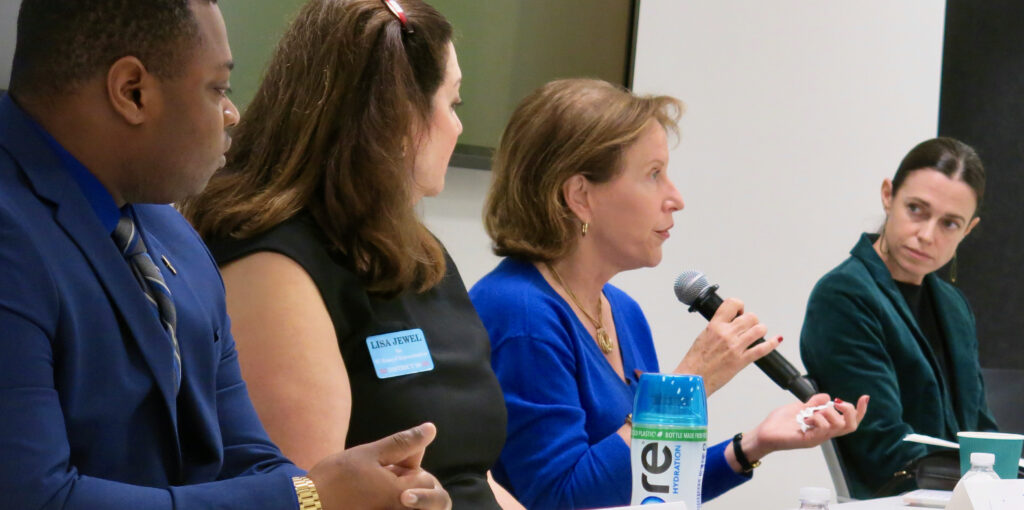
Jan. 30, 2024
Three districts. Two houses of the legislature. Several generations. Two political parties. Mostly newbies in partisan politics, but a vast range of experiences. Tuesday’s presentation captured only a fraction of the breadth of options available to Mecklenburg voters on March 5.
But perhaps the 90 minutes in the video below will give viewers more motivation to look further, dig deeper, and talk among their neighbors about what is at stake on various primary ballots – even while Super Tuesday hype diverts attention from these critical exercises of local democracy.
Four of the six candidates in the three primaries were present.
Carla Cunningham, who faces Vermanno Bowman in the House 106 primary, sent word that she was tied up with legislative committee work. The winner in that Democratic primary faces no opposition in November.
Jamie Daniell, who faces Stacie McGinn in the Senate 42 Republican primary, did not attend. The winner of that primary faces Democrat Woodson Bradley in November for the seat vacated by Democrat Rachel Hunt, who filed for Lieutenant Governor.
Lisa Jewel and Beth Helfrich are competing in the March 5 Democratic primary in House District 98 in north Mecklenburg. The winner faces Republican Melinda Bales in November.
For newer residents, it cannot be said often enough that North Carolina has enough history of legislative micromanaging in local affairs that many residents call it a Dillon’s Rule state, even if the N.C. General Assembly’s recent governance is perhaps a bit more flexible. Cities and towns aiming to solve problems with tools not specifically authorized by the N.C. General Assembly often find themselves bruised and bloodied [see N.C.:Mecklenburg:Charlotte]. Longtime residents know: Who is in control, which party is in control, in Raleigh is vitally important in the conduct of local government.